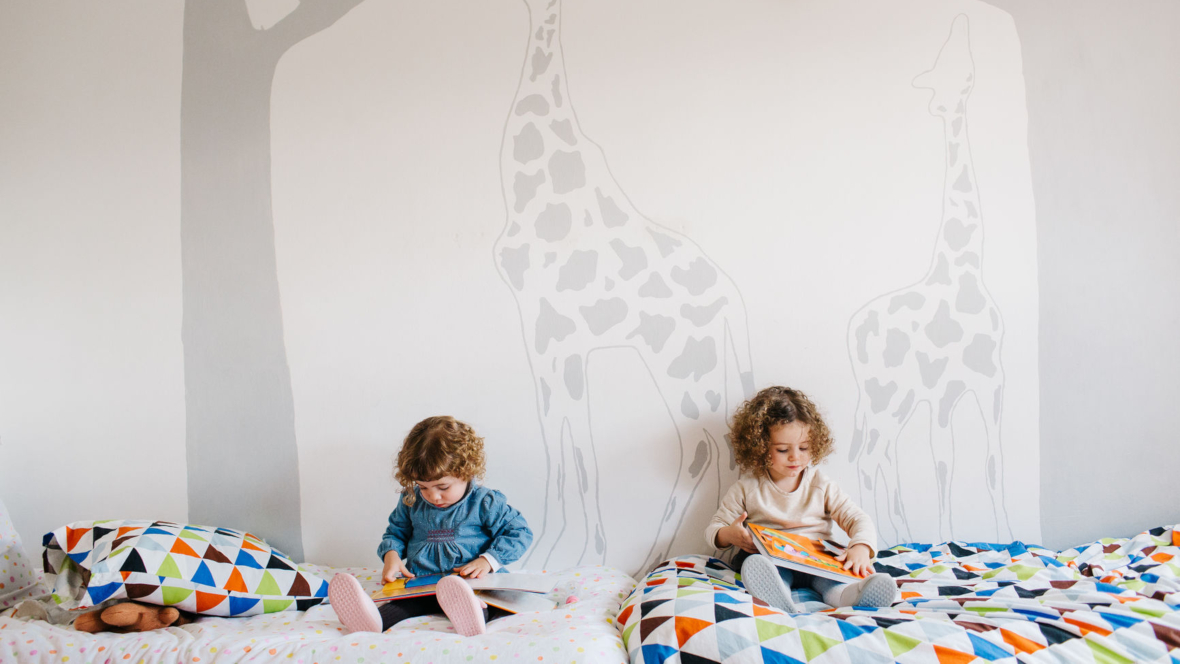
Pia Kotzur has been working as an editor at NetMoms since 2010 and has since been able to gain a lot of experience on what moves mothers in everyday life. After completing her studies in gender research and cultural studies, she delved into the cosmos of parent and family issues and now heads the NetMoms editorial team. Even part of a great (and sometimes challenging) patchwork family, they are particularly interested in unconventional family models. Her creed: If it feels right, then it is also good.
Children playing. They do it out of natural instinct. Your child is playing and his game is dealing with fundamental questions that determine his world. In the game, your child feels his way around his "Mini format" and learns to understand it.
Playing is a child’s instinct. Children play out of themselves and thereby create their own little worlds. Children try out all the options that are available to them. Playing has no goal. There are no finished or even perfect end products. Instead, children try to find answers to their questions or solve problems in the game. The meaning of games is to be seen in the fact that your child is on them wise tries to understand his world and to answer everyday questions: "What do giraffes eat?", "How can the fire brigade rescue the kitten from the tree?"
Children are not perfectionists
The result is not decisive. Because even if the fire fighter captain flies into the tree with his new car, that’s an important experience for your child. It’s not about perfection, but about training creative problem solutions. First of all, the child does not want to know that the fireman could extend the ladder to save the kitten. The child has to learn by trying, because only then does the learned really have an effect. If you give your child the opportunity to develop freely in the game, it will also be more creative and curious later. In addition, his self-confidence and thus the motivation for further attempts will be strengthened if your child can find solutions himself.
Play without restrictions
That is why it is important that you take your back when you are with Your child play, and don’t try to improve it. Because it keeps the fun of playing and therefore also learning. If you trust him to solve the problems on his own, then he also believes in himself and gains confidence in his abilities. It is important, that You don’t expect too much from your child. It is quite normal that in the beginning it paints houses without windows and doors or cars that cannot drive.
Playing has many advantages. If your kids are a little older, board and board games will become increasingly exciting for the little ones. In our articles "The most popular board games for young and old" and "The most beautiful board games for children and parents" you will find great ideas for some great game ideas.
RELATED ITEMS
-

Why play is important for your child’s mental development
Reading time: 2 minutes On the one hand, we hear again and again today that playing is important for the intellectual development of our children. On the…
-

Picture books and their importance for the development of children – part 1, reading in tyrol
Children do everything so that their parents can deal with them. They were formerly considered to be helpless, passive creatures, show new knowledge of the…
-

How children learn to play alone: 7 tips, active beauty
Playing is the best form of learning, and yet many parents plan their offspring with ballet, English lessons, instead of just more…
-

Important for baby development: play alone »magazine»
Important for development: Let your child play alone now and again Children need to play together with their parents for their development,…
